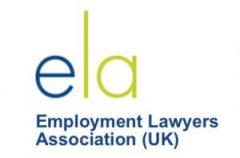In a previous article, we discussed how someone might challenge a Will on the grounds that they feel the deceased had not made sufficient provision for them in their Will. Now, Rachel Burnett looks at someone challenging a Will on the grounds that they believe the deceased did not have mental capacity at the time they made their Will.
Mental Capacity to make a Will
Everyone is presumed to have mental capacity until the contrary is proven. Mental capacity is a legal concept and often doctors will be called upon to provide evidence to the Court to set out their opinion on the Testator’s (the person who is making a Will) mental capacity at the time they made their last Will.
The basic requirements of Testamentary Capacity is;
- Must be over the age of 18 (unless they have privileged status); and
- Have the appropriate level of mental capacity.
Over 150 years ago a landmark case, Banks v Goodfellow, was tested through the Courts that set a precedent still used today in defining the standard for mental capacity to make a valid Will. The Judge in that case provided a tiered test for mental capacity – the Testator must have;
- Sound mind
- Sound memory
- Sound understanding at the time of making the Will.
The introduction of the Mental Capacity Act 2005 provides a general overview of mental capacity which can be applied to numerous scenarios, but it is only intended to enable the Court to make decisions for living, incapable persons, and not deceased testators.
In the recent case of Clitheroe v Bond [2020], the Court was asked to determine whether the correct basis to assess testamentary capacity was following the test set out in the Mental Capacity Act 2005, rather than the Banks v Goodfellow test. The High Court ruled that the Banks v Goodfellow test is ‘the correct and only test’ for testamentary capacity…has withstood the test of time…and has not been swept away by the Mental Capacity Act’.
If it is deemed that a person lacked testamentary capacity to make a Will, then the Will is deemed invalid, and the deceased’s estate would either pass on the basis of an earlier Will (if there was one) or under the Intestacy Rules.
Mental Capacity and Dementia
At THP Solicitors when we are taking instructions from our clients, we are mindful that Wills are being challenged more and more frequently, often on the basis that the testator may have had dementia.
It is important to note that a diagnosis of dementia, even if the testator made a Will after diagnosis, does not automatically mean that someone cannot make a valid Will. It all depends on whether the person meets, or met, the criteria for testamentary capacity above.
Mental Capacity Assessment
It is our job is to do everything we can to ensure that our client’s wishes are recorded in the most robust and appropriate format to ensure that they are as closely adhered to as possible.
If there is a risk that there could be a challenge based on the capacity of the testator, it may be appropriate to obtain a capacity assessment. The purpose of requesting such an assessment is to provide the testator’s Executors with the evidence they may need to defend the wishes of the Testator against a challenge on the grounds of capacity.
Being a well-established firm in the area we can offer assistance to our clients when the need for a capacity assessment arises and can make appropriate recommendations.
How we can help
Please contact our Wills, Trusts & Estate Administration team to see how we can assist on 0118 975 6622 (Lower Earley office) or 01491 570900 (Henley-on-Thames office) or send us a confidential email to office@thpsolicitors.co.uk









